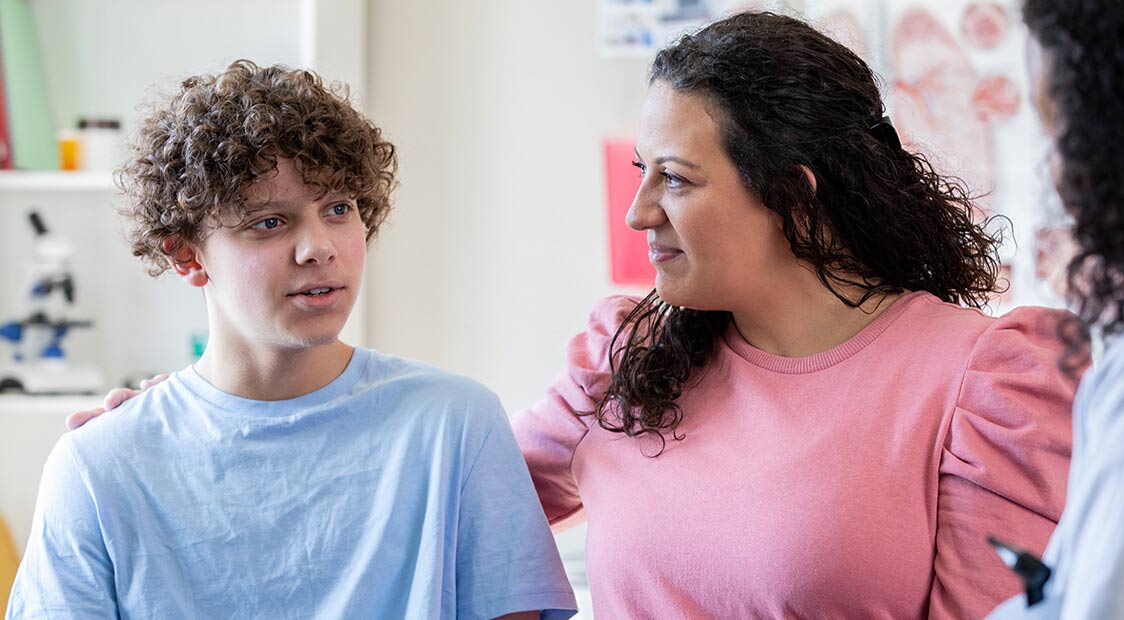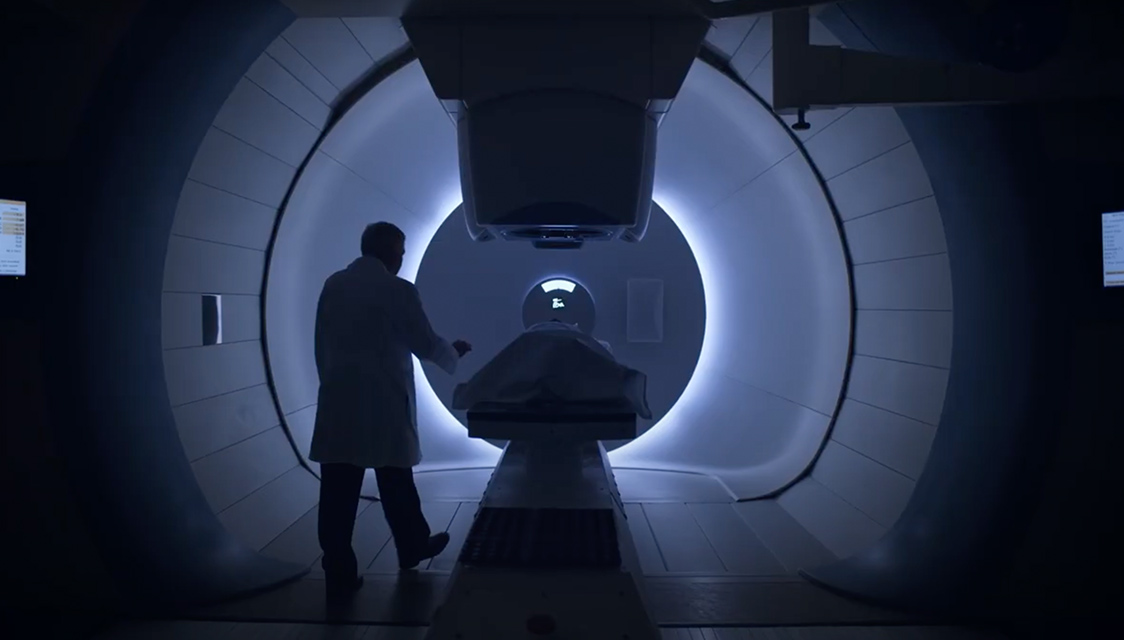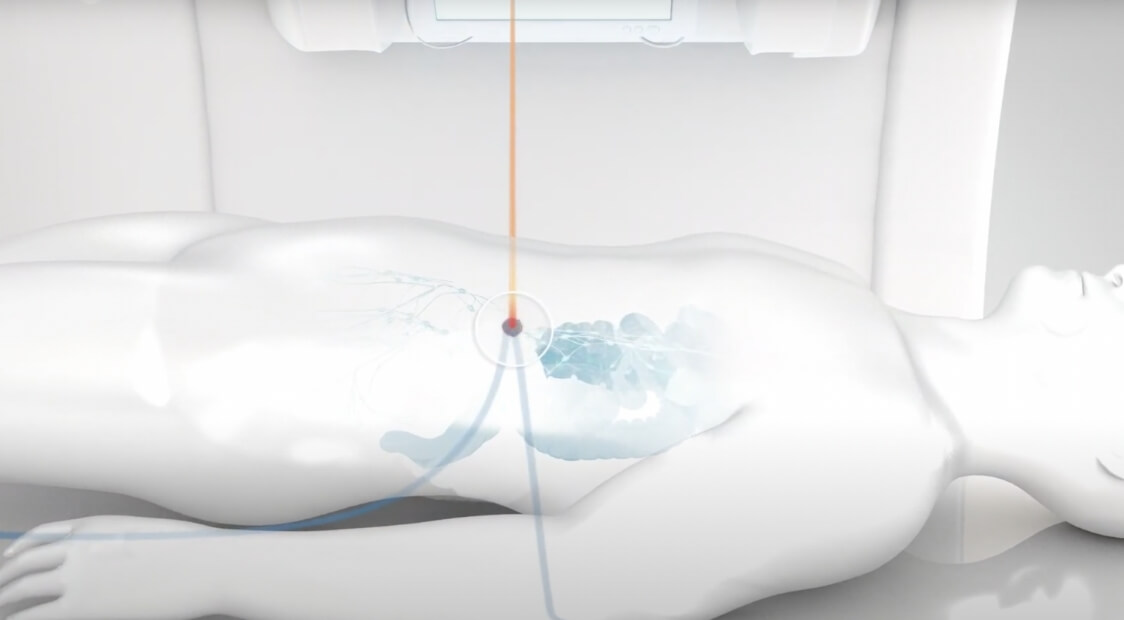Benefits of prostate cancer screening
By Bradlee Robbert
Prostate cancer is a leading cancer among men, with the American Cancer Society (ACS) predicting that approximately one in eight men will be diagnosed with the disease at some point in their lives.


Why patient support programs are a priority in cancer treatment
By Christina L. Mershell
When choosing a cancer treatment center, most people focus on technology, survival rates, physician expertise and location.

Meet your cancer treatment team: from simulation to treatment start
By Christina L. Mershell
So, you’ve had your consultation for cancer care at the UF Health Proton Therapy Institute, and your doctor has recommended radiation therapy. You’ve taken time to review the information, talk it over with loved ones, and decide to move forward with cancer treatment.

Meet your cancer treatment team: the consultation process
By Christina L. Mershell
Being diagnosed with cancer is life changing. After receiving your diagnosis and speaking with a specialist, you are likely to head home with a whirlwind of thoughts and emotions.

Discussing common proton therapy myths
By Christina L. Mershell
Proton therapy, also known as proton beam therapy or proton radiation, is a modern cancer treatment. It sends a precise dose of radiation to a tumor, destroying cancer cells while causing minimal harm to nearby healthy tissue.

I have cancer. Do I need radiation therapy?
By Bradlee Robbert
One of the most common ways doctors treat cancer is with radiation therapy. Radiation therapy uses high-energy rays, like X-rays, to kill or slow the growth of cancer cells.

The team behind the scenes of clinical research and trials
By Christina L. Mershell
The UF Health Proton Therapy Institute would not be here without decades of research on the role of proton therapy to treat cancer. And there is still more to learn.

What is oropharyngeal cancer
By Christina L. Mershell
Study Shows Proton Beam Therapy as a Standard of Care for the Disease Oropharyngeal Cancer. Oropharyngeal cancer, the most common head and neck cancer in the United States, is a malignant tumor of the tonsil, soft palate and/or base of tongue.

Current evidence on proton therapy for head and neck squamous cell carcinoma
By Christina L. Mershell
Cancer specialists who treat cancer of the head and neck have come together to review the current evidence on the use of proton therapy treatment for patients with head and neck squamous cell carcinoma (HNSCC).

Advances in lung cancer treatment: the power of five radiation treatments
By Christina L. Mershell
In the realm of oncology, treating lung cancer has long been a complex challenge due to the delicate nature of the surrounding structures and the potential for collateral damage.

How proton therapy reduces the risk of secondary cancers
By Bradlee Robbert, Christina L. Mershell
If you’ve researched proton therapy, you likely know it offers a lower risk of side effects when treating cancer. For many patients, concerns about side effects are top of mind after receiving a cancer diagnosis.

Proton therapy for childhood cancers
By Christina L. Mershell
Each year, almost 16,000 children will be diagnosed with cancer.

Benefits of prostate cancer screening
By Bradlee Robbert
Prostate cancer is a leading cancer among men, with the American Cancer Society (ACS) predicting that approximately one in eight men will be diagnosed with the disease at some point in their lives.

Innovations in proton therapy for prostate cancer treatment
By Christina L. Mershell
Making cancer treatment better for patients, both in improving cure rates and in reducing side effects, drives research and innovation at the UF Health Proton Therapy Institute.

Navigating radiation therapy: a prostate cancer treatment guide
By Christina L. Mershell
Receiving a prostate cancer diagnosis can be overwhelming, and understanding treatment options is crucial for making informed decisions.

Radiation treatment for prostate cancer
By Bradlee Robbert, Christina L. Mershell
Being diagnosed with prostate cancer can be overwhelming, especially when considering treatment options. Although surgery is often recommended, exploring alternative treatments, such as radiation therapy, is essential.

Survival rates for prostate cancer treated with proton therapy
By Bradlee Robbert, Christina L. Mershell
Proton therapy has shown promising results in treating prostate cancer, with high rates of tumor control and low rates of side effects. So, what are the survival rates for prostate cancer treated with proton therapy?

Why patient support programs are a priority in cancer treatment
By Christina L. Mershell
When choosing a cancer treatment center, most people focus on technology, survival rates, physician expertise and location.

Discussing common proton therapy myths
By Christina L. Mershell
Proton therapy, also known as proton beam therapy or proton radiation, is a modern cancer treatment. It sends a precise dose of radiation to a tumor, destroying cancer cells while causing minimal harm to nearby healthy tissue.

The team behind the scenes of clinical research and trials
By Christina L. Mershell
The UF Health Proton Therapy Institute would not be here without decades of research on the role of proton therapy to treat cancer. And there is still more to learn.

How proton therapy reduces the risk of secondary cancers
By Bradlee Robbert, Christina L. Mershell
If you’ve researched proton therapy, you likely know it offers a lower risk of side effects when treating cancer. For many patients, concerns about side effects are top of mind after receiving a cancer diagnosis.

Cancer caregivers and coping with your loved one’s cancer diagnosis and treatment
By Tamara Sorrye
People often overlook the selflessness of family and friends who care for someone with cancer. They support their loved ones through the diagnosis, treatment, and all the challenges that come with it.

Caring for cancer patients during the holidays
By Christina L. Mershell
The holidays are a magical time! While joyful, it can also be an overwhelming time filled with celebrations with family, friends and co-workers. There are gifts to buy, parties to plan, food to cook and travels to pack for.

Medical physics supports effective cancer treatment
By Christina L. Mershell
We have celebrated the International Day of Medical Physics on November 7th since the event started in 2012. This day honors Marie Sklodowska-Curie who was born in 1867 and is known for her important work on radioactivity.

Understanding a cancer research article
By Rianna Vazquez, Megan Prior
Knowledge is power. For many patients who have received a cancer diagnosis, information and knowledge are an essential tool to help ease anxieties and answer newfound questions about their condition.

Should I go to a high-volume center for cancer treatment?
By Bradlee Robbert
Hearing the words, "You have cancer," is life-altering. The road ahead may be difficult and figuring out how to treat the cancer diagnosis is only the beginning.

Navigating the journey: The vital role of nurse case managers in proton therapy for cancer treatment
By Christina L. Mershell
In the area of personalized cancer treatment, every journey is unique, yet the support you receive can make all the difference.

Clinical studies are vital in advancing cancer treatments
By Magory Dolcy
According to the American Cancer Society, clinical studies or clinical trials review new drugs, procedures and other treatments in people to study their efficacy and make improvements to treatment modules.

The UF Health Proton Therapy Institute creates an environment of healing
By Christina L. Mershell
In the past year, the UF Health Proton Therapy Institute has strived to create an environment of healing for all its patients during cancer treatment.

Current evidence on proton therapy for head and neck squamous cell carcinoma
By Christina L. Mershell
Cancer specialists who treat cancer of the head and neck have come together to review the current evidence on the use of proton therapy treatment for patients with head and neck squamous cell carcinoma (HNSCC).

Choosing the right cancer treatment center
By Christina L. Mershell
When faced with a cancer diagnosis, finding cancer care that is the best becomes a top-priority for individuals and their loved ones.

Radiation therapy and my cancer treatment plan
By Bradlee Robbert
Receiving a cancer diagnosis can be daunting and unsettling. It thrusts patients into a world filled with unfamiliar medical terminology and a multitude of treatment options.

Is proton therapy covered by insurance?
By Bradlee Robbert
“Is proton therapy covered by insurance?” This is one of the many questions you may have when deciding what cancer treatment is best for you.

What are the side effects of proton beam therapy?
By Christina L. Mershell
When faced with a cancer diagnosis, the impact on one's health and well-being become a paramount concern.

What is the difference between proton radiation and radiation therapy?
By Bradlee Robbert
Cancer treatment is tailored depending upon the type of cancer, where it is in the body and other factors.

